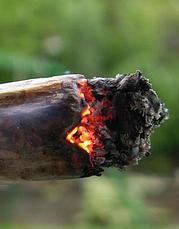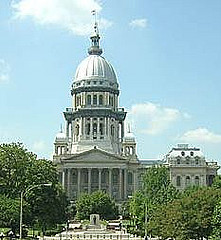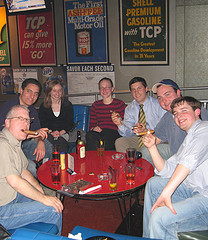Stogie Commentary: Re-Evaluating the Cuban Embargo
20 Feb 2008
Yesterday Fidel Castro announced that he would be stepping down after five decades as president of Cuba. This significant event gives us a rare moment to soberly re-examine the Cuban embargo that has kept Americans from legally obtaining Cuban cigars for so many years.
 Soon after Castro came into power, it became clear that he was a brutal thug who had no intention of respecting the rights of Cubans. In response to his embrace of communism and his government cozying up to the Soviet Union, JFK imposed a complete trade embargo and travel ban. (Just before signing the ban, he hypocritically stocked up on the very Cuban cigars he was about to criminalize – in this case, the Petit Upmann.)
Soon after Castro came into power, it became clear that he was a brutal thug who had no intention of respecting the rights of Cubans. In response to his embrace of communism and his government cozying up to the Soviet Union, JFK imposed a complete trade embargo and travel ban. (Just before signing the ban, he hypocritically stocked up on the very Cuban cigars he was about to criminalize – in this case, the Petit Upmann.)
At the time, it was thought that the embargo would prevent Americans from supporting Castro’s regime, but 45 years of evidence suggests we should rethink that logic. Certainly, Fidel was a dictator who headed up an oppressive government. Providing Castro an excuse for scapegoating the U.S. for the problems of Cuba, however, likely allowed him to hold onto power longer than otherwise would have been possible.
There are many brutal dictatorships around the world, but for some reason the U.S. government only imposes an embargo and travel ban on Cuba. In fact, other communist countries like China and Vietnam have become increasingly capitalist and liberal as we have traded with them.
With Fidel Castro stepping down, a new chapter begins in the long and complicated history between the U.S. and our island neighbor. Raúl Castro, Fidel’s brother and successor, will not instantly end the despotic regime, but there are indications that he is more open to market reforms and is considered more pragmatic.
While it may be wishful thinking, we should hope that Fidel’s exit will lead to serious discussion about, and the eventual ending of, the sanctions and travel ban against Cuba. And maybe in the near future we can all smoke some fine Cuban cigars to celebrate the end of the embargo.
photo credit: AFP

 Perhaps the most striking aspect of this cigar is the prelight aroma. It is sweet, thick, and alluring. The first impression is of a cigar worthy of commemorating a tenth anniversary. However, as looks can be deceiving, so can olfaction.
Perhaps the most striking aspect of this cigar is the prelight aroma. It is sweet, thick, and alluring. The first impression is of a cigar worthy of commemorating a tenth anniversary. However, as looks can be deceiving, so can olfaction.
 It also eliminates liberty. I’ve
It also eliminates liberty. I’ve 
 1) The cigar industry may not have its act together, but Big Tobacco (the cigarette industry) certainly does. At least in Illinois, anyways. Lobbyists in Springfield are working at a
1) The cigar industry may not have its act together, but Big Tobacco (the cigarette industry) certainly does. At least in Illinois, anyways. Lobbyists in Springfield are working at a  While we have hosted a few of these fun-filled events in the past (pictured at right), this one promises to be especially memorable.
While we have hosted a few of these fun-filled events in the past (pictured at right), this one promises to be especially memorable.  Patrick Ashby
Co-Founder & Editor in Chief
Patrick Ashby
Co-Founder & Editor in Chief Patrick Semmens
Co-Founder & Publisher
Patrick Semmens
Co-Founder & Publisher George Edmonson
Tampa Bureau Chief
George Edmonson
Tampa Bureau Chief